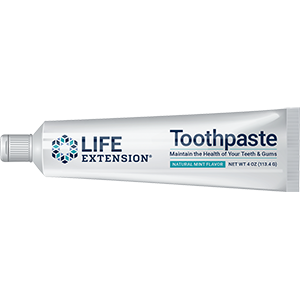 | October 9, 2009 | High folate intake associated with lower incidence of hearing loss in men | | The 2009 American Academy of Otolaryngology-Head and Neck Surgery Foundation Annual Meeting & OTO EXPO, held this year in San Diego, was the site of a presentation on October 5, 2009 of research conducted at Brigham and Women's Hospital in Boston which found a protective effect for the B vitamin folate against the development of hearing loss in older men. For their research, Josef Shargorodsky, MD and his colleagues analyzed data from 26,273 male dentists, optometrists, osteopaths, pharmacists, podiatrists, and veterinarians who were 40-75 years of age upon enrollment in the Health Professionals Follow-Up Study in 1986. Health and dietary questionnaires completed every two years were analyzed for the intake levels of several vitamins, including folate. Questionnaires completed in 2004 obtained information on hearing loss diagnosed since the beginning of the study. Over the course of the follow-up, 3,559 men developed hearing loss. Although no association was noted between the condition and other vitamin intake, men over 60 whose intake of folate from food and supplements was among the highest 20 percent of participants had a 21 percent reduction in the risk of developing hearing loss compared with those in the lowest fifth. The intake of alcohol, which can impede the bioavailability of folate, did not impact the relationship observed between folate intake and hearing loss, however, men whose alcohol intake was highest had a reduced risk of hearing loss with greater vitamin B12 intake. The investigation is the first large epidemiologic study to prospectively examine the relation between diet and hearing loss. "The association between folate intake and incident hearing loss in our cohort is consistent with previous data showing that folic acid supplementation slowed the decline in low frequency hearing in older adults," the authors write." A possible explanation for the impact of age on the relation between folate intake and hearing loss is the increased prevalence of folate malabsorption and folate depletion in the older age group. Higher folic acid intake may be necessary to meet the optimal folate needs in this age group." | |  |
| Tinnitus is a subjective disorder characterized as chronic ringing, roaring, buzzing, humming, chirping, or hissing in the ears in the absence of environmental noise (ATA 2002). Symptoms of tinnitus are frequently found in elderly persons and are often associated with hearing loss related to the aging process (presbycusis). Although the cause is usually unknown, tinnitus can be a symptom of almost any ear disorder, including infection (otitis media), a blocked ear canal (ear wax) or eustachian tube, otosclerosis (overgrowth of bone in the middle ear), labyrinthitis, and Meniere's disease. Even blast injury from explosions has been known to cause symptoms of tinnitus. Additionally, adverse side effects from some drugs (e.g., aspirin and antibiotics) cause tinnitus symptoms. According to Michael Seidman, M.D. (Tinnitus Center in Bloomfield, Michigan), there are specific nutrients that have been suggested to benefit persons with tinnitus. B-complex supplements lead this category because deficiencies in the B vitamins have been shown to result in tinnitus. The B vitamin complex stabilizes nerves and appears to have a beneficial effect on some tinnitus patients. However, only anecdotal evidence is available on this therapy. Some patients say vitamin B1 (thiamine) supplemented at 100-500 mg daily has provided them with relief from symptoms. Vitamin B3 (niacin) is the subject of numerous anecdotal reports that purport it to help reduce symptoms. Dr. Seidman usually recommends a starting dosage of 50 mg twice a day of niacin, up to a maximum of 500 mg twice a day, but he believes that if there is no improvement within 3-4 months, it is unlikely to occur. There may also be some correlation between the decline in vitamin B12 levels and the increasing prevalence of tinnitus in the elderly. A study by Shemesh et al. (1993) showed that there was a high prevalence (47%) of vitamin B12 deficiency in patients with chronic tinnitus. This deficiency was more widespread and severe in the tinnitus group that was associated with noise exposure, suggesting a relationship between vitamin B12 deficiency and dysfunction of the auditory pathway. Supplemental cobalamin was found to provide some relief in several patients with severe tinnitus. |
|  | Life Extension Toothpaste   | | Scientific evidence links poor oral health with inflammatory and oxidative stress throughout the body, particularly concerning arterial health and immune function. Fortunately, studies show that regular brushing, flossing, and rinsing with a mouthwash help promote good oral health. - Coenzyme Q10 — A powerful antioxidant, effective in promoting healthy teeth and gums
- Green tea — an herbal antioxidant containing catechins
- Hydrogen peroxide — cleanses teeth and gums
- Aloe vera — facilitates natural healing
- Xylitol — a natural sweetener that won’t decay teeth
- Folic acid — for healthier and more resilient gums
- Lactoferrin — supports healthy oral hygiene
- Squalane — antioxidant derived from shark liver oil
| | |   | 
Maintaining strong, healthy bones is key to successful aging. Unfortunately, even health-conscious adults often fail to consume enough calcium, vitamin D, and other nutrients known to protect against age-related loss of bone mineral density. New research on vitamin D has led an increasing number of experts to advise men and women over age 50 to protect against bone loss by consuming 800–1000 IU (and higher) of vitamin D each day. The Bone Restore formula provides 1000 IU of vitamin D3. To achieve optimal calcium status, Bone Restore provides 1200 elemental milligrams from three forms of highly absorbable calcium, plus other minerals required to maintain healthy bone density. | | | |  | | Life Extension Update | | What's Hot | | Life Extension magazine | |

